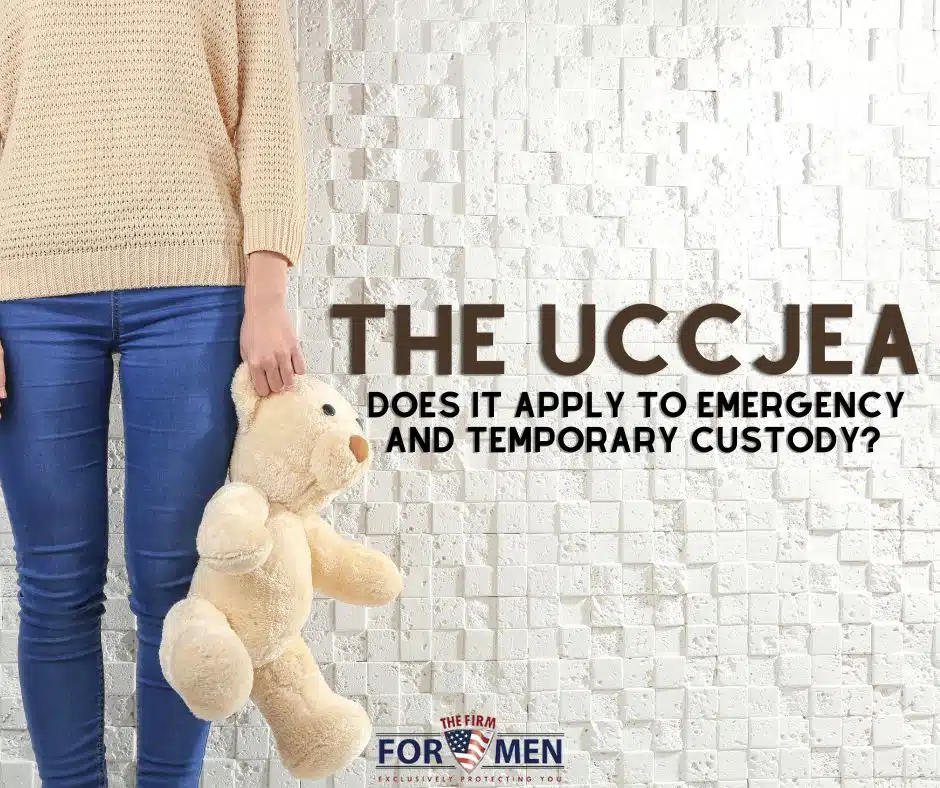Child custody conflicts can be alarmingly invasive. Take the recent case of Virginia mom Artleta Ramirez. She is compelled by a Virginia judge to bottle-feed her breastfed baby as part of a child custody clash. As seen in The Washington Post and People, the case highlights different interpretations of “best interests of the child.” That phrase is part of just about every child custody case. Fortunately for Baby Ramirez, the breastfeeding battle has not clashed with the UCCJEA, so far.
Jump to a Section
What is the UCCJEA?
Parents who cross the line with child custody might as well be starring in a “fugitive from justice” action pic. While some of Virginia’s men may aspire to be Tommy Lee Jones or Harrison Ford, most parents who violate the 1997 federal law known as the Uniform Child Custody Jurisdiction and Enforcement Act (UCCJEA) are in for a world of hurt.
The UCCJEA is, to quote the United States Department of Justice, “the most recent in a series of laws designed to deter interstate parental kidnapping and promote uniform jurisdiction and enforcement provisions in interstate child-custody and visitation cases.”
That’s right; illegally take your kid and you are tangling with the Feds. That can mean attention not only from your local police department, your state’s State Police, and your state’s SBI but also the FBI, the United States Marshal Service, and others among the 65 federal agencies with armed officers authorized to make arrests.
The UCCJEA pertains only to child custody, parental kidnapping, interstate and international visitation, and domestic violence. It has no bearing on child support cases. It does not dictate to each jurisdiction the standards for making or modifying child custody and visitation decisions.
Rather, the UCCJEA identifies which states’ courts have jurisdiction over child custody and visitation. It then orders those courts to use those decision-making powers.
The UCCJEA establishes equitable reciprocity between jurisdictions, so a Virginia court’s lawful orders for child custody and visitation are upheld in nearly every other state and jurisdiction. Likewise, your out-of-state court order establishing child custody — with one exception, and we’ll get to that — will be recognized and upheld by Virginia.
Emergency or Temporary Custody
Parental rights are sacrosanct in all the states, but all the states also hold child safety in the highest regard. A child in danger in Virginia does not have to be a Virginian to feel the comforting embrace of Virginia’s courts. Virginia’s Code, § 20-146.15, allows any Virginia court to take:
“temporary emergency jurisdiction if the child is present in this Commonwealth and the child has been abandoned or if it is necessary in an emergency to protect the child because the child, or a sibling or parent of the child, is subjected to mistreatment or abuse or placed in reasonable apprehension of mistreatment or abuse or there is reasonable apprehension that such person is threatened with mistreatment or abuse.”
Compare that wording with the UCCJEA itself to see if you notice anything:
SECTION 204. TEMPORARY EMERGENCY JURISDICTION.
(a) A court of this State has temporary emergency jurisdiction if the child is present in this State and the child has been abandoned or it is necessary in an emergency to protect the child because the child, or a sibling or parent of the child, is subjected to or threatened with mistreatment or abuse.
Every state but one that adopted the UCCJEA uses the same or similar wording. Virginia is a commonwealth, so the legislature switched ‘Commonwealth” for “state” but left the other wording largely the same.
(The unique holdout, Massachusetts, follows the older Uniform Child Custody Jurisdiction Act [UCCJA], so make sure your children’s mother doesn’t get any ideas about using Cape Cod as a convenient place to pull off parental kidnapping.)
The UCCJEA and Emergency or Temporary Custody
Virginia’s laws mirror the UCCJEA from beginning to end, reflecting the nearly nationwide desire to safeguard children from parental kidnapping and interstate flight.
The UCCJEA improves on earlier versions of the protections (such as the UCCJA and the Parental Kidnapping Prevention Act or PKPA) by doing three things:
- UCCJEA protects against disclosure of a victim’s address
- UCCJEA expands emergency jurisdiction to cases in which a parent or sibling is at risk
- UCCJEA requires courts to consider family abuse in their “inconvenient forum” analysis
An important feature of the UCCJEA and a major reason it is “uniform” is that any state hearing a child custody case, emergency custody issue, or temporary custody dispute, upon discovering that another state has started custody proceedings, must communicate with that other state “to resolve the emergency, protect the safety of the parties and the child, and determine a period for the duration of the temporary order.”
So, several hundred words past our title, we have our answer. Yes, the UCCJEA applies to emergency custody and temporary custody. As a protective Virginia parent, you should be very happy it does. And you may want to stay out of Massachusetts.
Call The Firm For Dads
If you are concerned that your children’s other parent may be contemplating parental kidnapping, you need personal, professional legal advice. You need The Firm For Men. Contact us today or telephone our Virginia Beach office at (757) 383-9184. We protect the rights and resources of Virginia’s men but also the rights and safety of every child in the Commonwealth.

